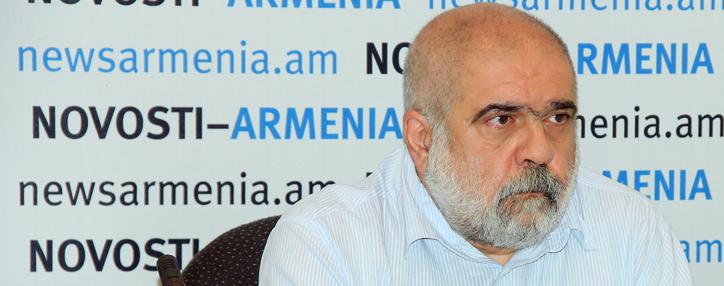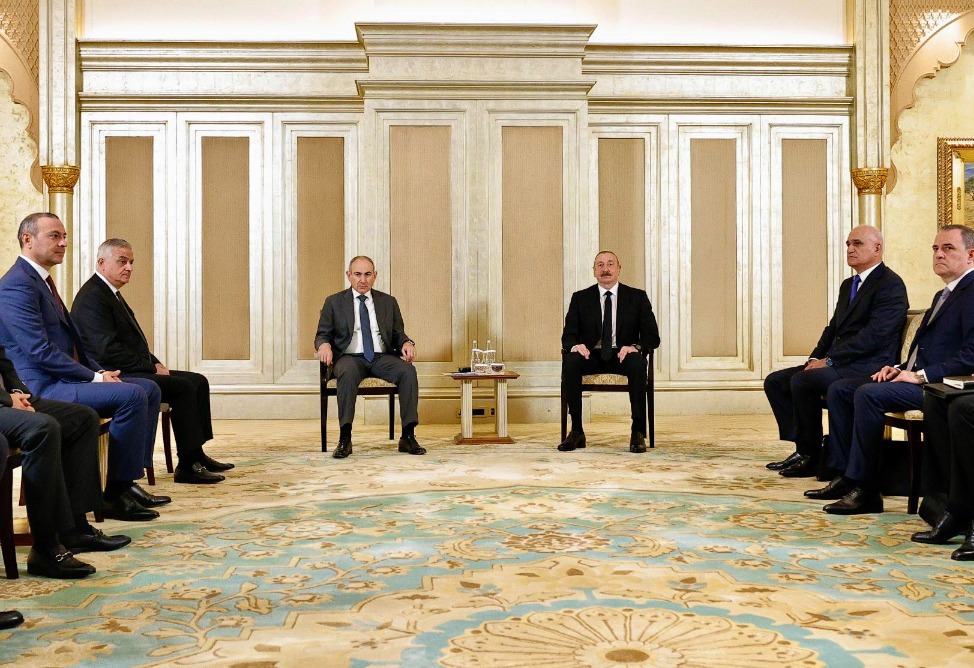Karabakh talks between Armenia and Azerbaijan shouldn’t be suspended due to Safarov case-expert
25.10.2012,
18:37
Talks over peaceful settlement of Nagorno-Karabakh conflict within the framework of OSCE Minks group cannot be suspended due to “Safarov case,” Caucasus Institute director, political scientist Alexander Iskandaryan told journalists Thursday, Novosti-Armenia reports.

YEREVAN, October 25. /ARKA/. Talks over peaceful settlement of Nagorno-Karabakh conflict within the framework of OSCE Minks group cannot be suspended due to “Safarov case,” Caucasus Institute director, political scientist Alexander Iskandaryan told journalists Thursday, Novosti-Armenia reports.
The Azeri serviceman, Ramil Safarov, was given a life sentence for hacking Armenian officer Gurgen Markarian to death with an axe on 19 February 2004 in Budapest during NATO training. On 31 August Budapest extradited Safarov to Azerbaijan where he was immediately pardoned by President Ilham Aliyev.
These actions erupted outrage in Yerevan. On 31 August Armenia’s President Serzh Sargsyan invited the heads of all diplomatic missions in Armenia to the extraordinary meeting and said Armenia suspends all diplomatic relations with Hungary. Contacts between Armenia and Azerbaijan have sharply deteriorated since then.
“I think, Armenia’s Minister of Foreign Affairs Edward Nalbandyan will head for Paris, and Minsk processes will continue. I believe, all sides are interested in saving the process rather than killing it,” Iskandaryan said.
According to information disseminated by media outlets, Ministers of Foreign Affairs of Armenia and Azerbaijan Edward Nalbandyan and Elmar Mamedyarov may meet in Paris this week to talk over Karabakh conflict settlement.
The whole world has already seen the real face of Azerbaijan through “Safarov case,” and suspension of Minsk process may lead to negative consequences, he added.
Iskandaryan also said such negotiations are essential to sustain security and stability in the region. According to him, Armenia will continue expressing tough position on the issue.
“Extradition of Safarov to Azerbaijan was not something unexpected, we had been always aware of Azerbaijan’s willingness to get him back. I think, the worst thing is not that Safarov was extradited, but the fact that he murdered Gurgen Margaryan in 2004. However, even after that the talks didn’t stop, thereby, it is not rational to suspend them now,” the expert said.
The conflict in Nagorno-Karabakh broke out in 1988 after the predominantly Armenian-populated Karabakh declared about secession from
Azerbaijan.
As Azerbaijan declared its independence from the Soviet Union and removed the powers held by the Karabakh’s government, the Armenian majority voted in 1991, December 10, to secede from Azerbaijan and in the process proclaimed the enclave the Republic of Nagorno-Karabakh. Full-scale fighting, initiated by Azerbaijan, erupted in the late winter of 1992. International mediation by several groups including Europe's OSCE’s failed to bring an end resolution that both sides could work with.
In the spring of 1993, Armenian forces captured regions outside the enclave itself. By the end of the war in 1994, the Armenians were in full control of most of the enclave and also held and currently control seven regions beyond the administrative borders of Nagorno-Karabakh. Almost 1 million people on both sides have been displaced as a result of the conflict. A Russian- -brokered ceasefire was signed in May 1994 and peace talks, mediated by the OSCE Minsk Group, have been held ever since by Armenia and Azerbaijan. -0-



